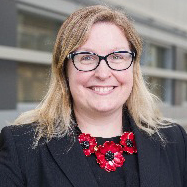Heart & Stroke chairs and professorships
Chairs and professorships provide salary and infrastructure support to enable a leading researcher to develop a specific heart disease or stroke research focus at a Canadian university or its affiliated research institute. Very often these leaders build a network or centre of research excellence , attracting the best and brightest new investigators to the institution. These initiatives are typically funded through designated endowments or through partnerships with like-minded organizations.



















